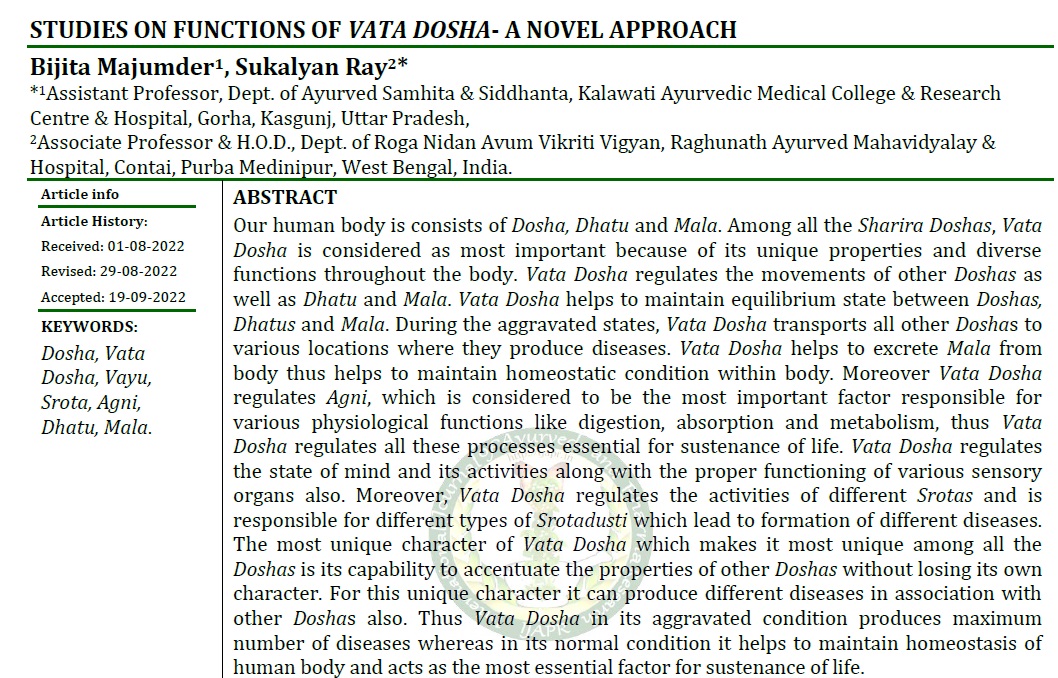Studies on Functions of Vata Dosha- A Novel Approach
DOI:
https://doi.org/10.47070/ijapr.v10iSuppl2.2542Keywords:
Dosha, Vata Dosha, Vayu, Srota, Agni, Dhatu, MalaAbstract
Our human body is consists of Dosha, Dhatu and Mala. Among all the Sharira Doshas, Vata Dosha is considered as most important because of its unique properties and diverse functions throughout the body. Vata Dosha regulates the movements of other Doshas as well as Dhatu and Mala. Vata Dosha helps to maintain equilibrium state between Doshas, Dhatus and Mala. During the aggravated states, Vata Dosha transports all other Doshas to various locations where they produce diseases. Vata Dosha helps to excrete Mala from body thus helps to maintain homeostatic condition within body. Moreover Vata Dosha regulates Agni, which is considered to be the most important factor responsible for various physiological functions like digestion, absorption and metabolism, thus Vata Dosha regulates all these processes essential for sustenance of life. Vata Dosha regulates the state of mind and its activities along with the proper functioning of various sensory organs also. Moreover, Vata Dosha regulates the activities of different Srotas and is responsible for different types of Srotadusti which lead to formation of different diseases. The most unique character of Vata Dosha which makes it most unique among all the Doshas is its capability to accentuate the properties of other Doshas without losing its own character. For this unique character it can produce different diseases in association with other Doshas also. Thus Vata Dosha in its aggravated condition produces maximum number of diseases whereas in its normal condition it helps to maintain homeostasis of human body and acts as the most essential factor for sustenance of life.
Downloads




